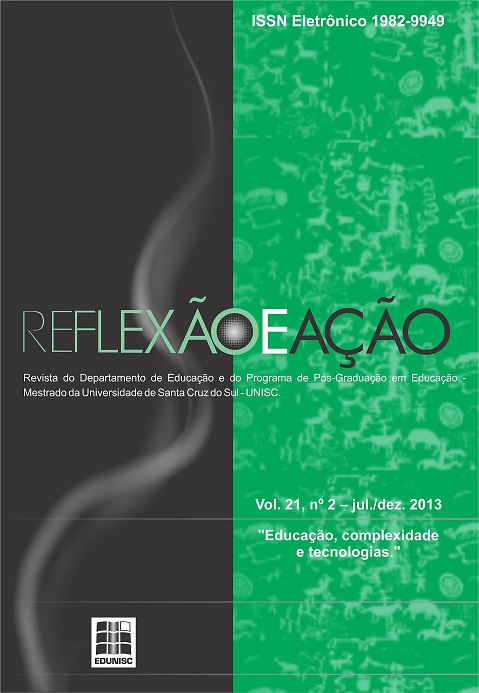ANTHROPOLOGICAL CHANGES RESULTING FROM THE USE OF DIGITAL TECHNOLOGIES OF INFORMATION AND COMMUNICATION (DTICS).
DOI:
https://doi.org/10.17058/rea.v21i2.3398Keywords:
Shift, Technologies, Contemporary SocietyAbstract
The purpose of the text, proposed herein, is to draw attention to the changes that are occurring with the human being as a result of the use of Digital Technologies of Information and Communication (DTICs). This is a theoretical reflection, based on recent literature, which deals with the impact of DTICs to people's lives, more specifically for the new generations that are predominantly digital (called by some people as digital natives). Our intention is not to treat the change as a philosophical concept that "change" or not, but to demonstrate that it has existed throughout the humanity history and that there should not cease to exist, carrying within the dynamics of constant becoming. Not only change the conditions, means and resources, it is from a deeper nature culminating in what we call "anthropological changes" with repercussions for the civilization. The relevance of perceived change and its consequences on the part of parents and educators, is to be a fundamental requirement that allows the understanding of the functioning of society, how the relationships are processed between people, their way of thinking, organize their life and being. Educating necessarily involves knowing how people think, how they act and are structured in their lives and what contributes to it, so we have no way to escape this debate.Downloads
Downloads
Published
How to Cite
Issue
Section
License
The submission of originals to this journal implies on the transference, by the author(s), of the printed and digital publishing rights. The author´s rights to the published articles are the author´s, the journal has the rights over the first publication. The author(s) can only use the same results in other publications, indicating clearly that this journal was the original publisher. Since we are an open access journal, the free use of articles is permitted for educational and scientific applications, as long as they inform the source according with the CC-BY license from Creative Commons.


